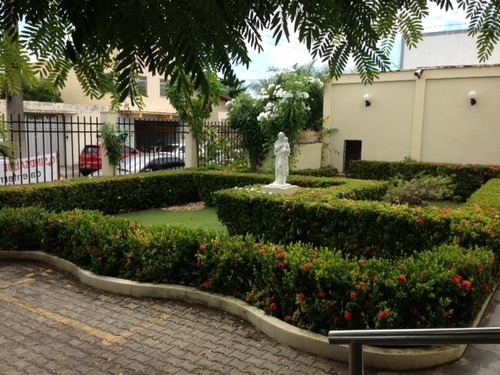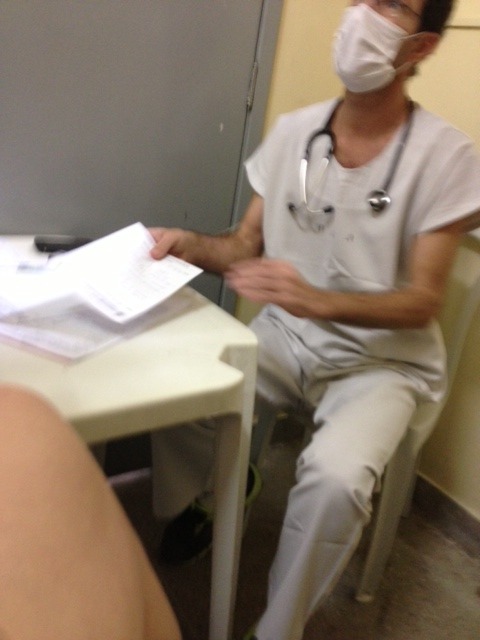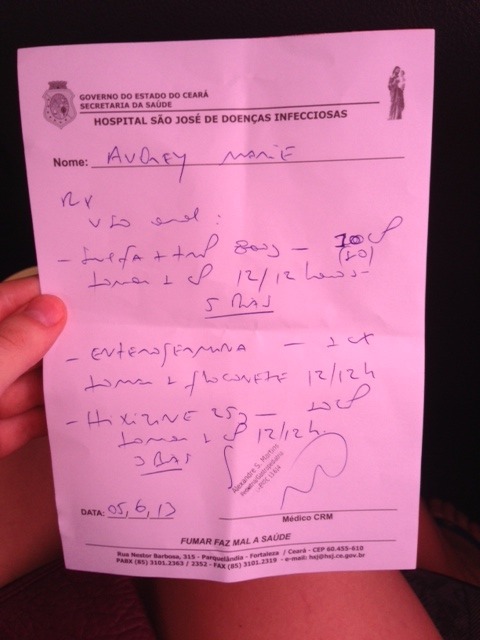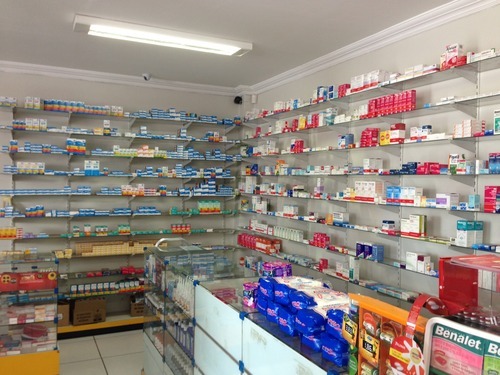Visiting a foreign hospital is like snooping through your friend’s medicine cabinet. It’s one of the best ways to discovering their dirty little secrets.
This brutally hot and tropical climate, new water, extremely different diet and constant use of public transportation finally got the best of me. Name it, and I’ve probably contracted it this past month.
It was time to take responsibility for myself and head over to a hospital. In Brazil, public health care is FREE (gasp!), even for foreigners. You don’t even need insurance. What you do need, however, is time to kill and low expectations.
The Questionnaire:
Name, Birthday, Address, Father’s name, Mother’s name, Occupation
Forget the 496-page questionnaire at an American practice (What’s your family history with eczema? At what age did your maternal great aunt start her menstrual cycle? Are you allergic to dandruff?). They just want the bare minimum here. It was convenient, but it made me a little apprehensive. I mean, how do you care for someone when you know so little about them?
The Facility:
The ambience was off the charts. The “waiting room” was a roofless, winding corridor with gardens adorning the center. Birds were singing, the sun was shining… and people were handing out face masks like lollipops. I couldn’t decide if it was a sick person’s paradise or a beautiful haven for bacteria. I didn’t stay long enough to find out.

Hospital courtyard
The System:
Here’s where I crossed into some grey area. My friend’s mother is a nurse at the hospital, and after 45 minutes she was able to squeeze me in for an appointment with a doctor. Although he was a pediatrician, he was still able to write me a prescription and give me an adequate check-up.
As I left the office, my house sister told me to hide my prescription so as not to anger the other patients who had been waiting longer than I had. I felt a little guilty. Apparently this sort of thing is common here. Just because everything is free doesn’t mean there’s no longer a need to cheat the system, and that’s important to remember when analyzing Brazil’s healthcare policies.

Clearly, I was not in the right office…but it was a doctor nonetheless.

Stealthy photo attempt of my doctor and his tiny office
The Prescription
…was chicken scratch. Forget the fancy computers, or iPads, or whatever doctors use in the USA nowadays, my doctor used a good old fashioned notebook for my prescription. I was shocked…I mean, I could easily change one of the names of the antibiotics to some kind of narcotic, right? Not only that, but I could not believe my pharmacist would be able to decipher these hieroglyphs. However, I had no choice but to trust in the system, and I left for the pharmacy.

The Pharmacy
I discovered here why it wasn’t such a big deal that my prescription was handwritten. The only thing that separated me from the thousands of prescription-only medicines was a small counter and about 3 feet of space. I also heard stories about how some pharmacists will fulfill a “prescription” for a little something on the side. Thankfully, the pharmacist was able to read my doctor’s scribbles, and I paid a total of $30 for three antibiotics. THIRTY DOLLARS. I was jumping for joy, but my host family was aghast. Medicine is so much cheaper here.

Overall
Compared to the USA, the check-up was less thorough, the facilities were more run-down, and the doctors and pharmacists I met weren’t as professional. Saying there is a lot of room for improvement here is a huge understatement. However, the bottom line is everyone, no matter their age, race, income, gender, health history, etc., receives free healthcare (ideally). Brazil’s healthcare system is broken, and in some regions it is absolutely atrocious (just read about the motives behind the recent riots). However, one of the main differences between healthcare policies in the Brazil and the US falls along the lines of “seen and unseen.”
In Brazil, you see the people who are suffering because their system allows them to receive free healthcare if they’re willing to wait for it. In some cases, waiting requires days. Dying people don’t usually have days at their disposal.
In the US, the same kind of suffering people are mostly unseen because they know their health history, employment status, and/or other factors will undoubtedly prevent treatment. Many would perceive the American healthcare institution as superior to Brazil’s, but they would be forgetting about the unseen suffering that blackens the squeaky clean image of most American hospitals.
I think many Americans would be more open to making real strides towards expanding healthcare in the US if they experienced the Brazilian system first-hand. If someone wants to spend the money on private healthcare, they have the freedom to do so here. Otherwise, everyone has access to a doctor. It might not be the best doctor out there, but it’s a doctor, and everyone deserves at least that. If the US decides to go this route they will most certainly need to pay closer attention to doctors’ qualifications, facility maintenance, and other issues that plague Brazil’s hospitals, but I truly believe there’s a way and a need to make this kind of system work in both countries.
Hi Audrey… Just found this post because you did a back-link to my own post about my public hospital experiences here in Brazil. My latest experience was in August last year; when I ended up in hospital Miguel Couto in Rio de Janeiro with a broken femur. Like you said, you need time… I had to wait 10 days to get an operation (intramedulary rod inserted into my bone). The surgery itself was done very professionally I have to say, but the hospital stay, apart from the food, which was actually very good, was not that great. Anyways… I’m not complaining because I got an operation, which would cost 50.000-60.000 Reais in a private hospital, for free.
A broken Femur is no joke, so it will take a while before I can go back to rock climbing, but mountainbiking, swimming and hiking are already possible.
Take care.
Hi Raf-
Thanks for your comment! Despite all the wait time you had to go through, it’s really good to hear that you were so well taken care of during the surgery.
How Brazil decides to allow their economic growth impact their healthcare services over the next few years will be very interesting to watch. I’m hoping they decide to invest less in tourism and more in healthcare and education.
I hope you’re continuing to heal and get to go back to adventuring soon.
Best wishes,
Audrey